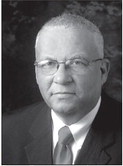Rare mumps outbreak highlights importance of vaccinations

Rare mumps outbreak highlights importance of vaccinations
This week the director of the Arkansas Department of Health, Dr. Nathanial Smith, appeared before the Public Health and Welfare Committee to update members on the outbreak of Mumps cases in Northwest Arkansas. This is the largest cluster of mumps cases that Arkansas has experienced since 2010.
Currently there are 162 cases, of which 49 have been confirmed by testing. The remaining 113 individuals are clinically diagnosed or have been identified as a close contact to a test confirmed case.
At this time, 22 schools in the Springdale school district, 5 schools in the Rogers school district and 1 school in the Huntsville school district are affected.
In response to the outbreak, the Arkansas Department of Health (ADH) is requiring students in the same school with vaccine exemptions for the MMR (Mumps, Measles, and Rubella) vaccine to be excluded from school for 26 days from the date of exposure and until the outbreak has ended. Students with nonmedical exemptions, who receive the recommended doses of MMR vaccine, may return to school immediately.
According to the Centers for Disease Control and Prevention (CDC), Mumps is a viral illness that is transmitted by direct contact with respiratory droplets or saliva from an infected person. It is best known for painful, swollen salivary glands that show up as puffy cheeks and swollen jaw.
Other symptoms include fever, headache, muscles aches, tiredness, and loss of appetite. There is no treatment, and symptoms usually resolve themselves within a few weeks. Mumps is usually a mild disease in children, but adults may have more serious disease with complications.
Two doses of MMR vaccine is 88 percent effective in preventing mumps.
Adults born before 1957 are generally considered to be immune to mumps and do not need to receive the MMR vaccine.
The current CDC recommendations for MMR vaccination are as follows:
• For children younger than 6 years of age, one dose of MMR vaccine or MMRV (Measles, Mumps, Rubella, and Varicella) vaccine at age 12-15 months, followed by a second dose of either MMR vaccine or MMRV vaccine at age 4-6 years.
• For children age 7 through 18 years not previously vaccinated, one dose of MMR vaccine or MMRV vaccine, followed by a second dose of either MMR vaccine or MMRV vaccine at least 4 weeks after the first dose.
• For adults born in 1957 or later and not previously vaccinated, one dose of MMR vaccine.
• A second dose of MMR vaccine is recommended for adults born in 1957 or later, who are students in a post-secondary educational institution, work in a health care facility, or plan to travel internationally.
The second dose should be administered a minimum of 28 days after the first dose.
MMR vaccines are available at the Local Health Unit in your county, and may also be available at your doctor’s office or your local pharmacy.

From State Representative Milton Nicks


Share